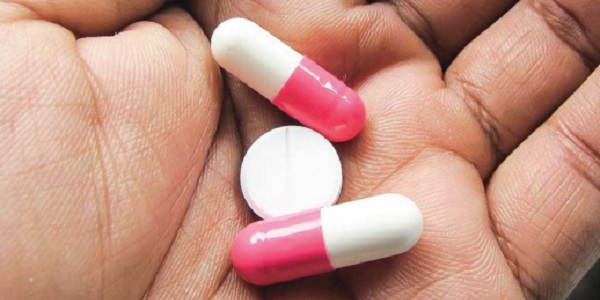
Why we may not need to rely on antibiotics
Kampala, Uganda | MONICA BEYER | Doctors tend to prescribe antibiotics to treat common bacterial infections, such as those of the urinary tract. However, a new study shows that there may be a new strategy to reduce or potentially even eliminate the need for using antibiotics.
The new findings were recently published in the Proceedings of the National Academy of Sciences. The investigators who conducted the study are from Stanford University in California.
They discovered that bacteria found in urinary tract infections (UTIs) require a version of the cellulose molecule to attach successfully to bladder cells. If this cellulose attachment can be interrupted, there may be another treatment option in the future that does not involve antibiotics.
UTIs and antibiotics
A UTI can occur in any part of the urinary tract, such as in the urethra, bladder, ureters, and kidneys. Symptoms include a burning feeling when you urinate, as well as a frequent need to urinate, even when your bladder isn’t very full. UTIs can lead to dangerous conditions if not promptly treated. It is vital to see a doctor as soon as
possible, because early treatment with antibiotics can clear up a UTI before it travels to the kidneys. Though antibiotics are the first line of defense against UTIs, there is a reason why they may not always work — namely, antibiotic resistance.
What causes antibiotic resistance?
Antibiotics are often prescribed for viral illnesses that do not respond to other medication, or when patients do not take that medication properly. Both scenarios can have the same result: antibiotic resistance.
This means that when you become sick with a bacterial infection, the antibiotics that your doctor prescribes might not work properly.
Also, antibiotics can impact the “good” bacteria that make up your gut microbiome, which can lead to further problems.
The results of the new study are very promising. Study co-leader Lynette Cegelski — an associate professor of chemistry at Stanford University’s School of Humanities and Sciences — notes that if we can target the way bacteria adhere to the body, we may be able to fight the infection without worrying about antibiotics at all.
The cellulose key
Plants, algae, and some bacteria produce cellulose. It has several scientific and practical uses, such as in fuel and paper.
The study revealed that there is a chemically unique form of cellulose called
phosphoethanolamine in the biofilm of Escherichia coli.
These bacteria can cause a number of maladies in the human body, and they are one of the most common causes of UTIs.
Also, the study found that this cellulose is pretty important to the bacteria. “Our experiments,” notes study co-leader Prof. Gerald Fuller, of the School of Engineering, “here reveal a specific function for the cellulose in which it serves a mortar-like role to enhance the adhesion strength of bacteria with bladder epithelial cells.”
In other words, the cellulose found in E. coli acts as sort of a glue between the bacteria themselves and cells found in the bladder.
What the future may hold
The results of this study suggest that in the future, it may be possible to target this cellulose instead of the bacteria themselves.
“Attacking the cellulose could be a great alternative to traditional antibiotics as preventing bacterial adhesion could help break the cycle of infection,” explains Emily Hollenbeck, a former joint-graduate student, adding:
“This type of treatment also avoids the ‘life-or-death’ pressure of traditional antibiotics that lead to drug-resistant mutations.”
 The Independent Uganda: You get the Truth we Pay the Price
The Independent Uganda: You get the Truth we Pay the Price




Me I hv tried treating but it’s still not healing can u help me
What medicine can u recommend me to take doctor for thorough cure of my uti here in Uganda